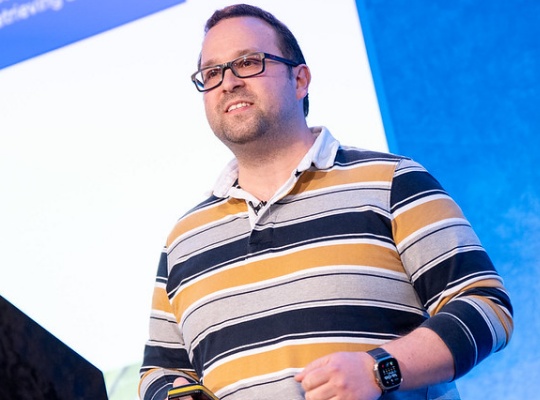Codetown
Codetown ::: a software developer's community
Anyone had experience with time-saving toolkits for Mobile Development?
I've done both iOS programming for iPad/iPhone and Android programming. All in the native platforms - Objective-C for iOS and Java for Android. Conversion between the two is much easier than porting to basic or an other non-C-derived language, but still takes no small amount of effort.
There are toolkits that claim to make the development and porting much easier. Specifically, MonoTouch by Novel and a tool called Sencha-touch.
Does anyone have an experience with these?
My past experience with toolkits that claim to save time has been much to the opposite. Generally there is less initial development time, but maintainence becomes clumsy and cumbersome.
Any thoughts?
Tags:
Replies to This Discussion
-
Permalink Reply by Kevin Neelands on May 28, 2012 at 8:28am
-
Have you used phonegap? And if you did. did it save man-hours in the long run?
-
-
Permalink Reply by Richard Dean on May 28, 2012 at 11:17am
-
Yes, I would also like to hear about other's experience with PhoneGap.
Kevin Neelands said:Have you used phonegap? And if you did. did it save man-hours in the long run?
-
-
Permalink Reply by Jackie Gleason on May 28, 2012 at 2:10pm
-
Phone gap and titanium are good although you would have to follow their convention. I would say givin you are used to working in a c-based language you just use c then just implement the UI in objective-c or java. Or even better use a open gl es based UI library then it will run on both (basically what some frameworks do). I have been toying lately with the idea of using node native modules compiled for arm but I am still working on that.
P.S. you can compile objective c natively on android but not all the cocoa libraries (uikit) are open sourced yet. -
-
Permalink Reply by Vlad Sanchez on May 28, 2012 at 2:21pm
-
Check out Corona. Although it is mostly used for game development, I've known many people using it for database applications lately. I've attended their last Meetup and it was an inspiring experience.
I personally was looking to overcome the fragmentation issues. After the meetup I realized there are no silver bullets. It's even a topic many people avoid talking about.
I hope this helps. Try Corona, it's free to try and very cheap to use commercially.
-
-
Permalink Reply by Jackie Gleason on May 28, 2012 at 6:36pm
-
Corona looks interesting but -1 for needing to buy and -1 for not having a responsive website
-
Notes
Welcome to Codetown!
 Codetown is a social network. It's got blogs, forums, groups, personal pages and more! You might think of Codetown as a funky camper van with lots of compartments for your stuff and a great multimedia system, too! Best of all, Codetown has room for all of your friends.
Codetown is a social network. It's got blogs, forums, groups, personal pages and more! You might think of Codetown as a funky camper van with lots of compartments for your stuff and a great multimedia system, too! Best of all, Codetown has room for all of your friends.
Created by Michael Levin Dec 18, 2008 at 6:56pm. Last updated by Michael Levin May 4, 2018.
Looking for Jobs or Staff?
Check out the Codetown Jobs group.
InfoQ Reading List
MySQL 9.6 Changes Foreign Key Constraints and Cascade Handling

MySQL is changing the way foreign key constraints and cascades are managed. Starting with MySQL 9.6, foreign key validation and cascade actions are handled by the SQL layer rather than the InnoDB storage engine. This will improve change tracking, replication accuracy, and data consistency, making MySQL more reliable for CDC pipelines, mixed-database environments, and analytics workloads.
By Renato LosioVercel Releases React Best Practices Skill with 40+ Performance Rules for AI Agents

Vercel has launched "react-best-practices," an open-source repository featuring 40+ performance optimization rules for React and Next.js apps. Tailored for AI coding agents yet valuable for developers, it categorizes rules based on impact, assisting in enhancing performance, bundle size, and architectural decisions.
By Daniel CurtisKubernetes Introduces Node Readiness Controller to Improve Pod Scheduling Reliability

The Kubernetes project recently announced a new core controller called the Node Readiness Controller, designed to enhance scheduling reliability and cluster health by making the API server’s view of node readiness more accurate.
By Craig RisiPresentation: Platforms for Secure API Connectivity With Architecture as Code

Jim Gough discusses the transition from accidental architect to API program leader, explaining how to manage the complexity of secure API connectivity. He shares the Common Architecture Language Model (CALM), a framework designed to bridge the developer-security gap. By leveraging architecture patterns, engineering leaders can move from six-month review cycles to two-hour automated deployments.
By Jim GoughMicrosoft Open Sources Evals for Agent Interop Starter Kit to Benchmark Enterprise AI Agents

Microsoft's Evals for Agent Interop is an open-source starter kit that enables developers to evaluate AI agents in realistic work scenarios. It features curated scenarios, datasets, and an evaluation harness to assess agent performance across tools like email and calendars.
By Edin KapićSwitch to the Mobile Optimized View
© 2026 Created by Michael Levin.
Powered by
![]()